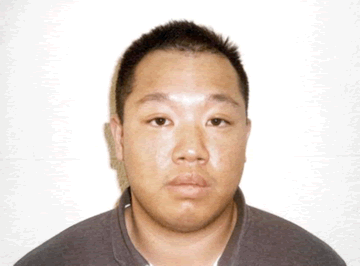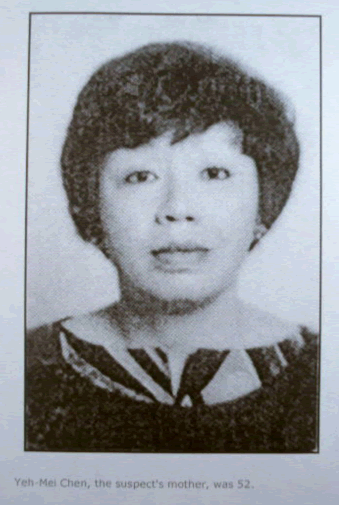A family tragedy; then came forgery.
GREAT FALLS, VA–With savings from their contracting business, Wu-Hung and Yeh-Mei Chen came to America.
The plan was to save their sons, Raymond and Edward, from Taiwan’s mandatory military service, and give them a better life. Once here the family settled in this suburb of Washington, DC.
The Chens bought an upscale home on two acres, and invested in four other residential properties. Raymond, the eldest son, went to college and majored in business so he could manage the family holdings.
But the family plan began to unravel when young Edward fell in love with Mandy, a high-school dropout and teenage mom. His mother objected–this was not the “nice Chinese girl” she wanted for her son.
Yeh-Mei was hurt and angry, and she badgered Edward to stop seeing Mandy. Edward fought with her, and there were heated family arguments. Finally, the stress Edward was feeling became unbearable. He bought a 30-30 Winchester rifle at K-Mart, and shot his mother, father and brother in their beds.
Edward told Mandy they could now be together. He told neighbors and relatives back in Taiwan that his parents and brother had died in an auto accident. He locked up the house, with the victims still inside, and moved in with Mandy.
Mandy got pregnant and Edward married her. Soon they had a new baby daughter.
Edward lived off rental incomes for a while, but with expensive tastes and mounting bills decided to start selling the family properties.
All of the Chen properties were held in a family trust, with Raymond Chen appointed as trustee. Edward got a new driver’s license with his photo and Raymond’s name.
Edward went about selling the properties, impersonating his dead brother. Edward and Mandy divorced.
The family home was the last to be sold. It was now more than four years since the killings, and the victims had yet to be removed. But while it sat vacant, a water pipe had failed and flooded much of the house. Floors, walls and carpeting were damaged or ruined. There was mold.
Edward cleaned up the blood stains, and ditched his victims’ bodies in Chesapeake Bay. He offered the house “as is” at a big discount.
A young couple bought the house, and rehabilitated it from top to bottom.
Edward got a new girlfriend and they began to live together. In an unguarded moment, he told the girlfriend that he’d killed his parents and brother. The girlfriend saw danger, and went to the police.
The police interviewed Mandy, who also knew of the killings, and Edward was arrested.
As reported by the Washington Post, Edward was surprised to be arrested and he made a taped confession. But when the confession was thrown out, as Edward had not been read his Miranda rights, Fairfax County prosecutors became worried about their case. They had no murder weapon, and couldn’t find the victims’ remains. All they had to go on were statements of an ex-wife and former girlfriend.
Edward eventually took a plea bargain. He was convicted of three counts of first degree murder, and sentenced to 36 years in prison. He was 27 years old.
But now buyers of the five Chen properties had big problems. They realized deeds they got from “Raymond Chen,” as trustee of the family trust, were forgeries. The deeds were void, and ownership of the properties remained in the trust.
The trust, it turned out, had as beneficiaries the father, mother, and their “descendants.” Upon death of the parents and all descendants, trust assets would be given to a hospital in Taiwan.
So here’s the deal: After the killings the only “descendant” was Edward–his daughter would be born two years later. But the law says that a killer can’t benefit from the death of his victim (the so-called “Slayer’s Rule”), so Edward could not inherit the trust assets. But what about Edward’s daughter, was her inheritance also barred by the Slayer’s Rule? And, if so, were the buyers of the five Chen properties now guests of the hospital in Taiwan?
For these buyers, this was the proverbial riddle wrapped in an enigma…. What to do???
The buyers had title insurance, and title companies paid for lawsuits to quiet title. A legal guardian was appointed for Edward’s minor daughter. In time the hospital released its claims. Title companies contributed to a $1.2 million settlement with the daughter, and five titles were confirmed by court order. The buyers got to watch new deeds get recorded in Fairfax County land records.
Case(s) closed.
Moral: The risk of identity theft, impersonation, forgery–whatever you choose to call it–can be covered by title insurance.



